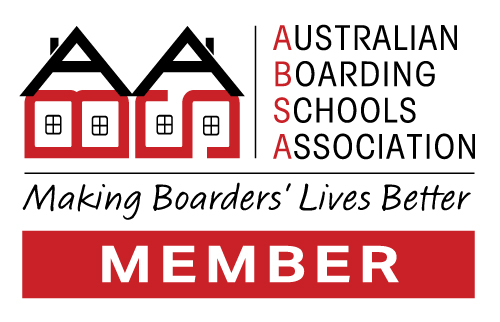[vc_row][vc_column][vc_custom_heading text=”The Power of Music: Unlocking Student Development Through Melody and Rhythm” use_theme_fonts=”yes”][vc_column_text]Music is often seen as a creative outlet, but its benefits extend far beyond entertainment. Like planting a seed in rich soil, introducing students to music early on helps their minds grow in ways that aren’t always visible immediately. Music acts as both the sun and the rain, nurturing their cognitive, emotional, and social development, enabling them to flourish into well-rounded individuals.
Whether through learning an instrument, singing in a choir, or simply appreciating music, students can experience a range of developmental advantages. Understanding how music fosters growth can help educators and parents support this powerful tool in a student’s education.[/vc_column_text][/vc_column][/vc_row][vc_row][vc_column width=”1/4″][vc_empty_space height=”150px”][vc_single_image image=”59103″ img_size=”medium”][/vc_column][vc_column width=”3/4″][vc_custom_heading text=”Cognitive Development” use_theme_fonts=”yes”][vc_column_text]One of the most significant impacts of music on a student’s development is internal and external cognitive growth. Research shows that music can have an internal impact by stimulating various areas of the brain associated with memory, attention, and problem-solving. A study by Schellenberg (2004) found that students who received music lessons had improved IQ scores compared to those who did not, suggesting that music training enhances general cognitive abilities.
Playing an instrument, for example, requires a student to focus on multiple tasks simultaneously—reading music, maintaining rhythm, and coordinating hand movements. This multitasking strengthens the brain’s executive function, which is responsible for decision-making, attention, and time management. According to Diamond and Lee (2011), these skills are crucial for academic success, and music training can help sharpen them.
In addition to this, Johnson and Smith (2020) found that participating in music programs positively influences students’ self-esteem by providing them with opportunities to showcase their skills in front of an audience. This not only enhances their confidence but also helps them manage performance anxiety, as learning to translate internal skills into public presentations builds resilience. Additionally, studies show that performing music requires students to navigate mental focus under pressure, which helps them stand firm in high-pressure situations, reinforcing both their self-trust and emotional regulation (Clark & Williamon, 2011)[/vc_column_text][/vc_column][/vc_row][vc_row][vc_column width=”2/3″][vc_custom_heading text=”Emotional Development” use_theme_fonts=”yes”][vc_column_text]Beyond cognitive benefits, music has a profound impact on emotional development. Music allows students to express themselves in ways that words often cannot, providing an emotional outlet during a time when they may struggle to articulate their feelings. Studies have shown that engaging with music can reduce stress and anxiety, improving a student’s emotional regulation (Koelsch, 2009).
Music can be a vital tool for self-discovery and identity formation, particularly for adolescents. Whether students compose their own songs or explore different genres, music helps them understand and navigate their emotions, fostering resilience and emotional intelligence.[/vc_column_text][/vc_column][vc_column width=”1/3″][vc_single_image image=”59104″ img_size=”medium”][/vc_column][/vc_row][vc_row][vc_column width=”1/4″][vc_single_image image=”59105″ img_size=”medium”][/vc_column][vc_column width=”3/4″][vc_custom_heading text=”Social Skills” use_theme_fonts=”yes”][vc_column_text]Music also plays a pivotal role in the development of social skills. Participating in group music activities like band or choir teaches students the importance of collaboration, communication, and teamwork. In a study conducted by Rabinowitch, Cross, and Burnard (2013), students who engaged in group music-making showed improved empathy and social cohesion compared to those who didn’t. Playing in an ensemble requires students to listen carefully to others, stay in sync, and adapt to group dynamics, all of which are essential social skills.[/vc_column_text][/vc_column][/vc_row][vc_row][vc_column width=”2/3″][vc_custom_heading text=”Academic Achievement” use_theme_fonts=”yes”][vc_column_text]Surprisingly, music education can positively influence academic performance. A study by Vaughn (2000) found that students involved in music programs consistently scored higher on standardized tests in both math and reading. The patterns and structures within music, such as rhythm and harmony, enhance mathematical thinking, while the creativity in composition and interpretation improves literacy skills. The discipline and focus required to master an instrument or perform music also translate into better study habits and academic perseverance.[/vc_column_text][/vc_column][vc_column width=”1/3″][vc_single_image image=”59112″ img_size=”medium”][/vc_column][/vc_row][vc_row][vc_column width=”1/4″][vc_single_image image=”59108″ img_size=”medium”][/vc_column][vc_column width=”3/4″][vc_custom_heading text=”Cultural Awareness” use_theme_fonts=”yes”][vc_column_text]Music exposes students to various cultures and traditions, fostering a greater understanding and appreciation of diversity. Whether through world music classes or performances of classical pieces from different eras, students learn about the history and cultural significance of music across the globe. This exposure broadens their worldview and cultivates empathy for people from different backgrounds. As Campbell (2010) notes, music education helps students become more culturally literate and socially responsible citizens.
Music is much more than just a school subject—it’s a powerful tool that enhances cognitive, emotional, social, and academic development. From improving brain function to fostering empathy and collaboration, the benefits of music education are wide-ranging and long-lasting. By recognizing the importance of music in a student’s development, educators and parents can provide the support needed to nurture musicians and well-rounded individuals.
At Raffles American School, music is the culture of learning and academic achievement. Through the course, students are able to connect and apply their core subjects, such as math (music theory), science (frequency and vibration), and even physical education (marching band and drumline), to perform.
Raffles American School offers a comprehensive music program featuring IB Music, AP Music, Honor Band, Jazz Band, Drumline, Choir, and much more. Our students also have the unique opportunity to connect, collaborate, and network with international peers across Southeast Asia, enriching their musical journey and cultural experience. To find out more about our programs, contact our team at inquiry@raffles-american-school.edu.my.[/vc_column_text][/vc_column][/vc_row][vc_row][vc_column][vc_custom_heading text=”Bibliography” use_theme_fonts=”yes”][vc_column_text]
- Schellenberg, E. G. (2004). Music lessons enhance IQ. Psychological Science, 15(8), 511–514.Retrieved from https://journals.sagepub.com/doi/10.1111/j.0956-7976.2004.00711.x
- Diamond, A., & Lee, K. (2011). Interventions shown to aid executive function development in children 4 to 12 years old. Science, 333(6045), 959–964. Retrieved from https://www.ncbi.nlm.nih.gov/pmc/articles/PMC3159917/
- Koelsch, S. (2009). A neuroscientific perspective on music therapy. Annals of the New York Academy of Sciences, 1169(1), 374-384. Retrieved from https://stefan-koelsch.de/papers/Koelsch_2009_ANYAS_music_therapy.pdf
- Rabinowitch, T. C., Cross, I., & Burnard, P. (2013). Long-term musical group interaction has a positive influence on empathy in children. Psychology of Music, 41(4), 484-498. Retrieved from https://www.music.org/pdf/summit/2014long-term.pdf
- Vaughn, K. (2000). Music and mathematics: Modest support for the oft-claimed relationship. Journal of Aesthetic Education, 34(3/4), 149-166. Retrieved from https://www.jstor.org/stable/3333641
- Campbell, P. S. (2010). Songs in Their Heads: Music and Its Meaning in Children’s Lives. Oxford University Press. Retrieved from https://www.researchgate.net/publication/319020856_Songs_in_Their_Heads_Music_and_Its_Meaning_in_Children’s_Lives_2nd_ed
- Osborne, M.S., Greene, D.J. & Immel, D.T. Managing performance anxiety and improving mental skills in conservatoire students through performance psychology training: a pilot study. Psych Well-Being 4, 18 (2014). https://doi.org/10.1186/s13612-014-0018-3
Musicly. (n.d.). The impact of music education on academic achievement: Key research findings. Musicly. Retrieved from https://www.musicly.uk/scripted/the-impact-of-music-education-on-academic-achievement-key-research-findings[/vc_column_text][/vc_column][/vc_row]




